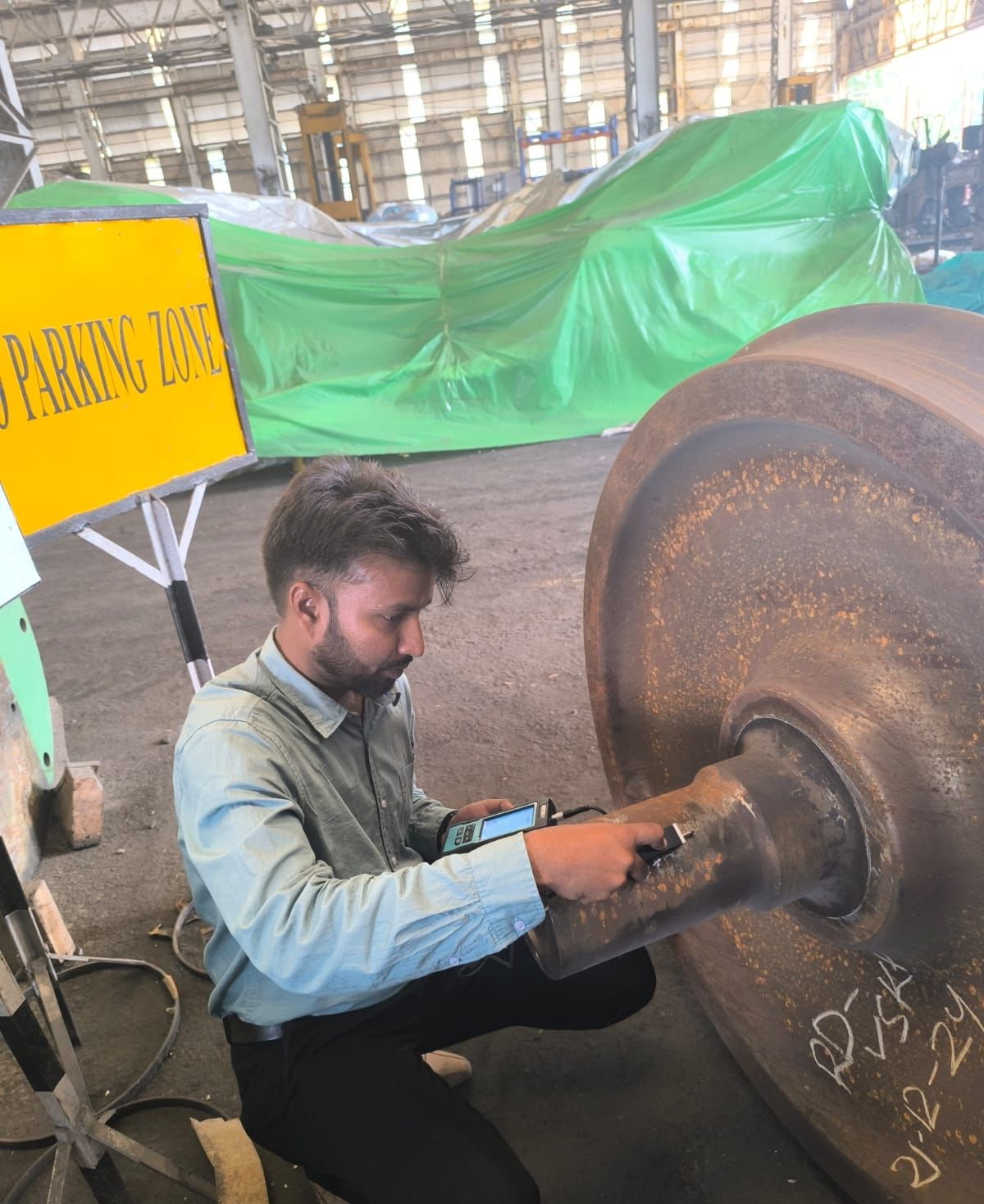
Explore our range of advanced surface roughness testers designed to meet the highest standards of precision and durability. At METERDI, we provide surface roughness measurement equipment that delivers accurate, consistent, and fast evaluations of surface texture across a wide range of industrial applications. Whether you work in automotive manufacturing, metalworking, tool making, or scientific research, our instruments are engineered to give you reliable data where it matters most.
Surface roughness is a critical parameter that directly affects the performance, safety, and wear characteristics of components. Even minor irregularities on a surface can lead to reduced efficiency, premature failure, or poor product quality. That’s why industries rely on surface roughness testing machines to inspect and control surface quality during production and final inspection stages. METERDI testers support key parameters such as Ra, Rz, Rt, and Rq, offering precise measurements in microns.
Our testers are portable, easy to use, and built for field and lab environments alike. With features like high-precision diamond stylus probes, large LCD displays, USB data output, and compliance with ISO, JIS, and ANSI standards, METERDI delivers lab-grade performance in a compact, user-friendly design.
Backed by expert support and Pan-India delivery, METERDI surface roughness testers are a trusted choice for professionals seeking accuracy and efficiency in surface evaluation. Start measuring with confidence—explore our models today and enhance your quality control processes.
Surface roughness refers to the small-scale irregularities and texture present on a material’s surface. It is a critical parameter that describes the fine details of the surface profile, including peaks, valleys, and overall unevenness. These microscopic variations affect how a surface interacts with its environment, influencing properties such as friction, wear resistance, adhesion, and appearance. Surface roughness is typically measured in microns using specialized instruments called surface roughness testers, which help quantify the texture by calculating parameters like Ra, Rz, and Rt. Understanding and controlling surface roughness is essential in manufacturing and quality control to ensure optimal performance, durability, and aesthetics of components across industries such as automotive, aerospace, metalworking, and electronics.
Modern testers use contact-based or non-contact methods. METERDI’s portable testers operate on inductive skidded probes, scanning the surface and converting vertical movements into roughness profiles. These values are then calculated using international standards.
Common surface roughness measurement units:
Ra (Roughness Average)
Rz (Average Maximum Height)
Rt (Total Height)
Rq (Root Mean Square)

METERDI surface roughness testers utilize advanced, ISO and JIS-compliant measurement techniques to deliver precise and repeatable results. The primary method is contact stylus-based measurement, widely regarded as the most accurate approach for metallic surfaces. Depending on the application, our devices offer both skidded and skidless measurement modes—ideal for evaluating flat, curved, or irregular components. Key elements such as evaluation length and cutoff filters help eliminate noise and ensure consistent surface profiling. These techniques make METERDI testers highly effective for anyone looking to understand how to check roughness of a surface in workshops, laboratories, or industrial quality control settings.
METERDI surface roughness testers are engineered for portability, ease of use, and high accuracy, making them ideal for both field and lab applications. They offer a wide measurement range, with Ra from 0.05 to 20 μm and Rz up to 200 μm, suitable for various industrial surfaces. Equipped with a high-precision diamond-tipped probe, these testers deliver fast and reliable results. Users can measure multiple surface parameters including Ra, Rz, Rq, and Rt, ensuring comprehensive surface evaluation. A large LCD screen provides real-time profile viewing, while USB data output and a rechargeable battery enhance convenience. All models comply with ISO, JIS, and ANSI standards, making them a trusted choice for professional surface testing.
Surface roughness testing plays a crucial role across a wide range of industrial applications where precision and quality are critical. It is widely used for CNC component inspection, ensuring machined parts meet required surface finish standards. During polishing and grinding processes, roughness testers help monitor and control surface textures in real-time. In the paint and coating industry, they ensure proper surface preparation for optimal adhesion and finish. Metal fabrication quality assurance (QA) relies on roughness measurements to detect surface inconsistencies that could affect performance. Additionally, in the automotive sector, these testers are essential for validating the surface finish of engine components, where even slight irregularities can impact functionality and efficiency.
Our portable testers use a diamond stylus that traverses the surface. Vertical displacements of the stylus are converted into electrical signals, which are then processed to derive roughness profiles such as Ra, Rz, and Rt. The output is displayed instantly on the screen or saved for reporting.
This stylus-based method is considered the most reliable among surface roughness measurement methods used today.
A surface roughness tester plays a vital role in industrial quality control by ensuring that manufactured components meet precise surface finish specifications. Surface texture directly impacts a part’s functionality, durability, and performance—affecting factors like friction, wear, coating adhesion, and sealing effectiveness. By accurately measuring surface roughness, industries can detect defects early, maintain consistent production quality, and reduce costly rework or failures. Whether in automotive, aerospace, metal fabrication, or electronics manufacturing, using a reliable surface roughness tester helps maintain strict quality standards, improve product reliability, and enhance customer satisfaction. This makes surface roughness testing an indispensable part of any rigorous quality assurance process.
When selecting a surface roughness tester, users should consider several key factors to ensure the device meets their specific needs. Accuracy and measurement range are critical—choose a tester that can handle the surface roughness levels typical of your materials, with parameters like Ra and Rz covering your requirements. Portability is important if you need to perform inspections in the field or on large equipment. Look for ease of use, including a clear display and intuitive interface, to speed up testing and reduce errors. Compliance with international standards such as ISO and JIS guarantees reliable and comparable results. Additional features like data storage, USB connectivity, and rechargeable batteries can improve efficiency. Finally, consider the tester’s durability and the availability of technical support to ensure long-term value and consistent performance in your industrial or laboratory environment.
© 2024-2025 METERDI Instruments India Pvt Ltd. All Rights Reserved.